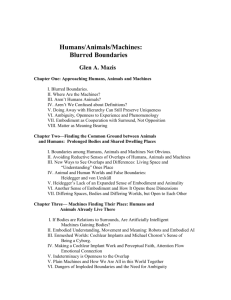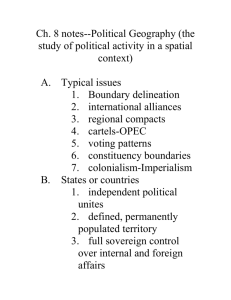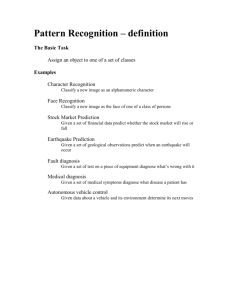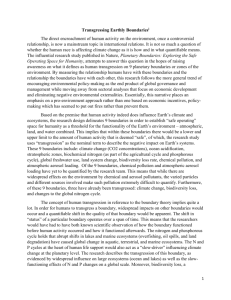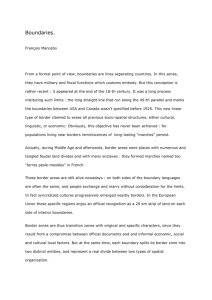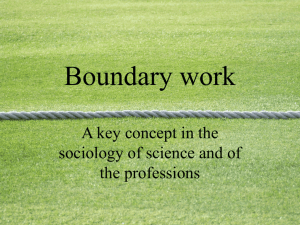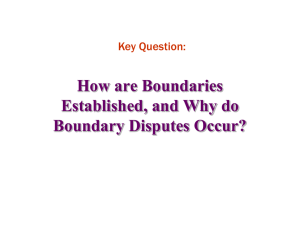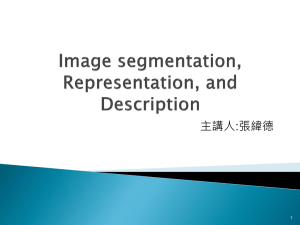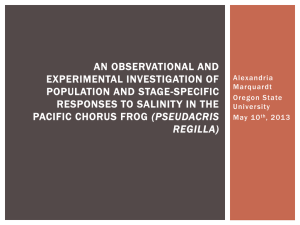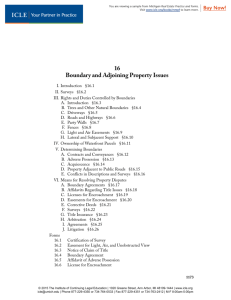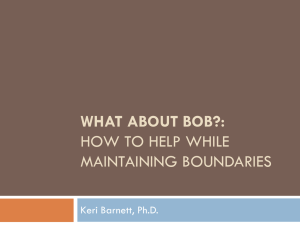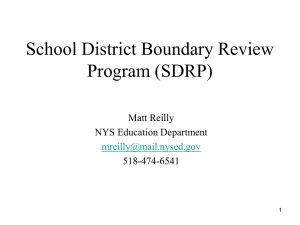Studying professions in shifting occupational contexts
advertisement
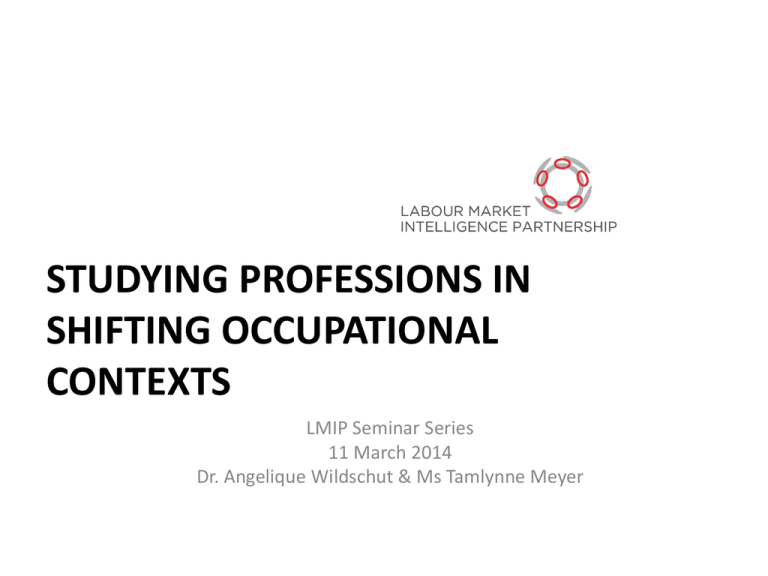
STUDYING PROFESSIONS IN SHIFTING OCCUPATIONAL CONTEXTS LMIP Seminar Series 11 March 2014 Dr. Angelique Wildschut & Ms Tamlynne Meyer SA study using boundaries “the construction of boundaries (‘boundary work’) is central to the establishment and reproduction of the • • • professions” (Fournier, 2009: 69). A study to understand shifting artisanal occupational milieus and identities towards a Labour Market Intelligence System in SA Key concepts in the study of boundaries: – Symbolic boundaries: conceptual distinctions made by social actors to categorise objects, people, practices, and even time and space. – Social boundaries: objectified forms of social differences manifested in unequal access to and unequal distribution of resources and social opportunities. This boundary would for instance, be evident in racial categorisation. Provides a theoretical lens to study and focus on the processes involved in the maintenance of boundaries – allows us to make explicit the basis upon which inequality is often maintained, re/produced, or transformed – “search for understanding the role of symbolic resources (eg. conceptual distinctions, interpretive strategies, cultural traditions) in creating, maintaining, contesting, or even dissolving institutionalised social differences (eg. class, gender, race, territorial inequality etc.)” (Lamont & Molnar, 2002: 168). What does the nature and use of boundary objects and the particular types of boundary work tell us about the presence, nature and extent of occupational structural change? Working conceptual frame Boundary work Objects Types Processes Materials Symbolic Social Tools Crossing Tasks Shifting Territorialisation Institutionalisation Politicisation Syntactic Semantic Pragmatic Relocation Resources Extending an analytical frame A case of mechatronics in the automotive sector Technology • Increased computerization & automation of production processes - previously manually controlled. • Increased need for technologically skilled artisans & reduced involvement in direct production. • Combine/eliminate certain jobs/tasks • Formal knowledge of professionals allow them to claim jurisdictional authority as the nature of there job and training requires them to be exposed to technology. • Boundary objects: SCADA systems, PLC’s and KUKA robots used by professionals allow symbolic boundaries to be introduced/maintained between artisans and professionals, and thereby allowing new jurisdictions to emerge. Organisation of work • Nature of work and organisation hierarchically structured - allowing boundaries to be strengthened. • Artisans are working closely with professionals, resulting in improved teamwork, but also conflicts - allowing symbolic boundaries to be maintained. • Practical vs. Formal knowledge –jurisdictional authority • The most significant boundary object relates to fault-finding and fixing • Overlap in many tasks & thus continual reaffirmation of their positions - allowing for boundary maintenance and boundary shifting . A case of mechatronics in the automotive sector Managerialism Application of management techniques – planning, organising, co-ordinating, leading, directing, etc • Can serve to strengthen/weaken/shift symbolic boundary • ‘lots more involved in being an artisan’ • Artisans are increasing required to have ‘soft’ skills and take on managerial functions - procurement, planning, organising, leadership, reporting • Management previously considered a function of professionals – indicates how boundaries have shifted. Relevance to current debates In the world of work • The nature of increasing precariousness of professional groups • The basis upon which jurisdictional claims are made and maintained • The increasing impact of managerialism and organisations In the SA context and for skills development particularly • Contributing towards an emerging South African literature on professional groups • Expanding a set of theoretical and analytical frames for the study of artisanal occupations in SA • Artisanal occupations and expert occupations • Artisanal occupations and development: Shortage of intermediate level skills • Occupational identities and status • Professions: For eg. academic or law professions • Institutionalised inequalities: Gender, race, age, ethnicity, disability, for eg.
